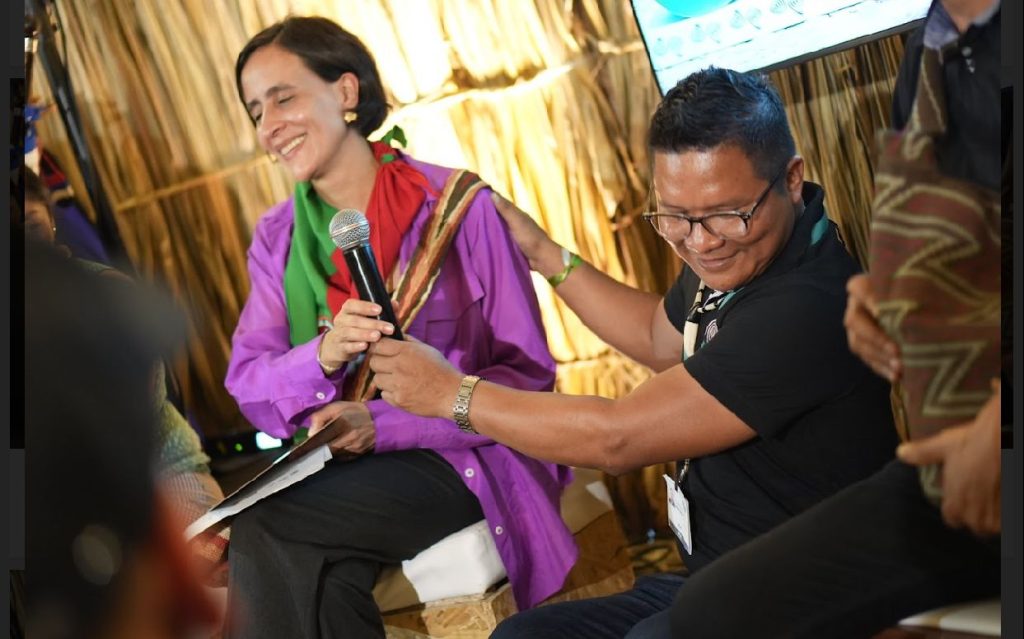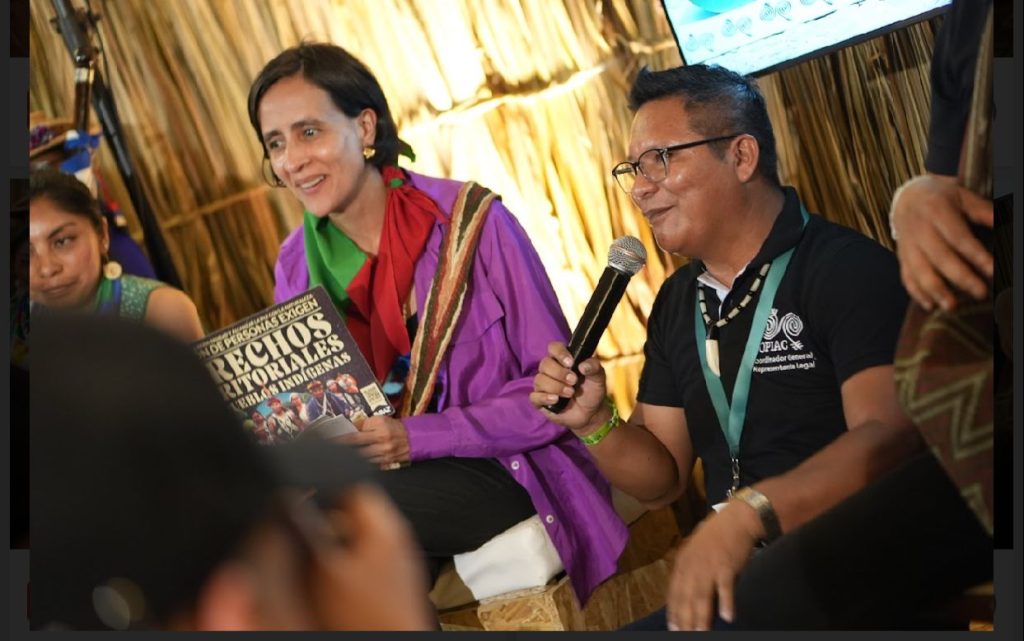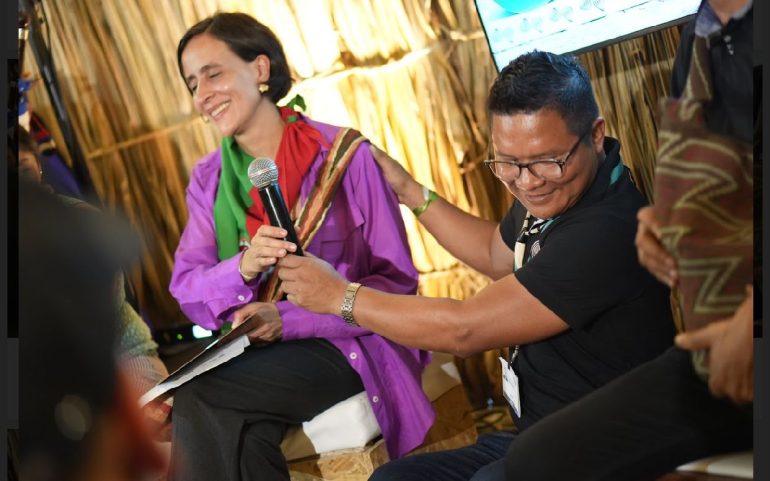October 24, 2024
By Samuel Ogunsona
At the ongoing 16th meeting of the Conference of the Parties (COP16) to the Convention on Biological Diversity, President Susana Muhamad received a petition signed by over 1 million citizens worldwide, urging Parties to legally recognize Indigenous Peoples’ territories.
According to campaigners, the recognition is crucial for achieving 30% conservation by 2030 and providing Indigenous Peoples (IPs) with direct access to funds to safeguard biodiversity.
Oswaldo Muca, Head of OPIAC, delivered the Avaaz petition in the Amazon Maloca in the Green Zone, emphasizing that Indigenous territories are a “win-win solution.”
“Our territories are a win-win solution. Science has already confirmed that Indigenous Peoples are the ones who best conserve our lands and that this effort has made it possible for the world to survive the biodiversity loss crisis. Only by legally recognizing our territories can the world achieve and go beyond the target of conserving 30% by 2030.” Mica said.
He also stressed that science has confirmed Indigenous Peoples as the best conservators of their lands, which has helped the world survive the biodiversity loss crisis.
Muca asserted that legal recognition of Indigenous territories is essential to achieving and exceeding the 30% conservation target by 2030.
The Kunming-Montreal Global Biodiversity Framework, adopted at COP15, sets four transformative goals, including protecting nature, promoting sustainable use, management of biodiversity, and fair sharing of benefits from genetic resources.
The framework recognizes the rights of Indigenous Peoples to lands, territories, and resources, and their values, knowledge, and contributions to biodiversity conservation.
The key demands of the petition include legal recognition of Indigenous Peoples’ territories, direct access to funds for biodiversity conservation, and ensuring Indigenous Peoples’ rights to Free, Prior and Informed Consent in conservation efforts.
The implementation of the Kunming-Montreal Framework requires adequate financial and technical resources, capacity building, and information sharing. Resource mobilization will be a key issue at COP16, with Parties considering proposals for a global biodiversity financing instrument.
Photo Credit OPIAC


